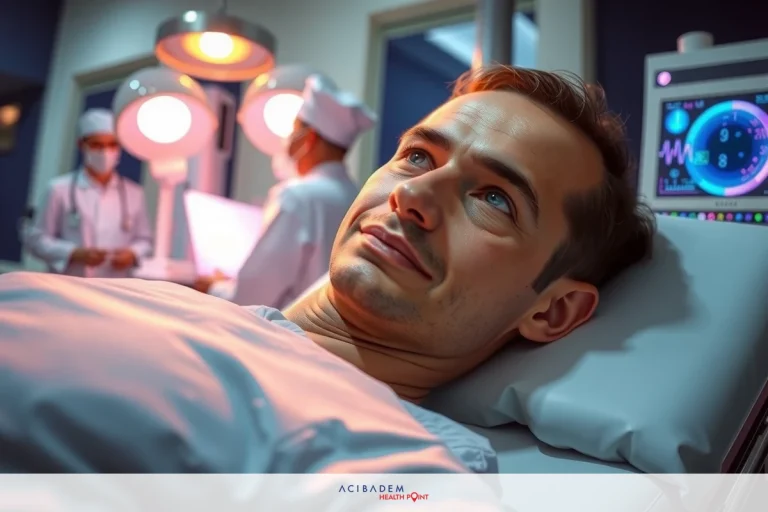CAR T-cell Therapy for Brain Tumors CAR T-cell therapy is a new way to treat cancer. It uses the body’s own immune cells to fight cancer. This method can help patients who have not found success with other treatments. The process involves taking T- cells from the patient, changing them in a lab, and putting them back into the body. Many people find this approach promising.
Patients often feel worried when they hear “brain tumor” Traditional treatments can be tough on the body and mind. CAR T-cell therapy offers hope by targeting cancer cells more directly. It’s less harsh than some older methods and aims to improve quality of life during treatment.
Talking with your doctor about CAR T-cell therapy is important. Doctors can explain how it works and if it’s right for you or a loved one. They will guide you through what to expect before, during, and after treatment sessions. Always seek advice from medical experts for personalized care plans.
What is CAR T-cell Therapy?
CAR T-cell therapy is a type of cancer treatment. It maybe helps the body fight brain tumors. This method uses the body’s own immune cells. These cells are called T-cells which attack cancer cells.
First doctors take T-cells from a patient’s blood. They then change these cells in a lab to target specific cancer cells. After that they put the changed T-cells back into the patient’s body. This process boosts the body’s ability to fight cancer.
This therapy falls under immunotherapy because it uses the immune system to combat disease. It’s different from other treatments like chemotherapy or radiation. Those methods can harm both healthy and unhealthy cells. In contrast CAR T-cell therapy aims at just attacking cancer cells.
People with brain tumors may benefit greatly from this approach. Traditional treatments sometimes don’t work well for everyone who has brain tumors. CAR T-cell therapy provides another option for patients and their families seeking hope in their battle against cancer.
Benefits Of CAR T-Cell Therapy
CAR T-cell therapy offers some benefits for brain tumor patients. One key advantage is its precision. This treatment targets only cancer cells sparing healthy ones. Traditional methods like chemotherapy can harm both good and bad cells. CAR T-cell therapy aims to reduce this unwanted damage.
Another big benefit is the potential for long-lasting effects. Modified T-cells remain in the body after treatment ends. They continue to seek out and destroy cancer cells over time. This ongoing action may help prevent the return of tumors offering sustained relief.
Patients often experience fewer side effects compared to other treatments. Chemotherapy and radiation can lead to severe symptoms like nausea or hair loss. CAR T-cell therapy’s targeted approach means less overall stress on the body. This makes it a more tolerable option for many people.
Lastly, this method opens new doors in cancer treatment research and development. Immunotherapy represents a shift toward smarter more personalized care options for patients with brain tumors. Ongoing studies aim to refine techniques and improve success rates further making future treatments even better.
Possible Side Effects
CAR T-cell therapy can have some side effects. One common reaction is cytokine release syndrome (CRS). This happens when the immune system gets very active. Symptoms include fever, fatigue, and nausea. While it sounds scary doctors know how to manage it.
Another possible side effect is neurotoxicity. This affects the brain and nervous system in some cases. Patients might feel confused or have trouble speaking clearly. These symptoms are usually temporary but need medical attention right away to ensure safety.
Other mild reactions may also occur during treatment sessions. Some people experience low blood pressure or difficulty breathing for a short time after receiving the modified cells back into their body system from doctors’ labs.

Consulting Your Doctor
Talking to your doctor about CAR T-cell therapy is crucial. They can provide detailed information. This includes understanding how the treatment works and what to expect. Doctors are well-versed in cancer treatments especially brain tumors.
Discussing your medical history with your healthcare provider is vital. Some health conditions may affect eligibility for CAR T-cell therapy. Your doctor will review your records carefully. This helps determine if this treatment suits you best.
Your healthcare provider can explain potential side effects clearly. Understanding risks like cytokine release syndrome or neurotoxicity is important. Knowing these details helps you make an informed decision about undergoing CAR T-cell therapy.
Doctors also guide you through the process step-by-step. From initial consultation to post-treatment care they offer support throughout the journey. This ensures that all aspects of the treatment plan are covered comprehensively.
Lastly consulting a specialist provides peace of mind during challenging times dealing with brain tumors and related concerns surrounding innovative immunotherapy options available today such as CAR T-cell therapies tailored specifically around each patient’s unique needs by expert oncologists specializing in cutting-edge cancer treatments designed for optimal outcomes!
Frequently Asked Questions
Q: What is CAR T-Cell therapy?
A: CAR T-cell therapy is a type of cancer treatment that uses modified immune cells to target and destroy cancer cells.
Q: How does CAR T-cell therapy work?
A: Doctors take T-cells from the patient, modify them in a lab to attack cancer cells, and then return them to the patient's body.
Q: Are there side effects with CAR T-cell therapy?
A: Yes some common side effects include cytokine release syndrome (CRS) and neurotoxicity. These can usually be managed by medical professionals.








